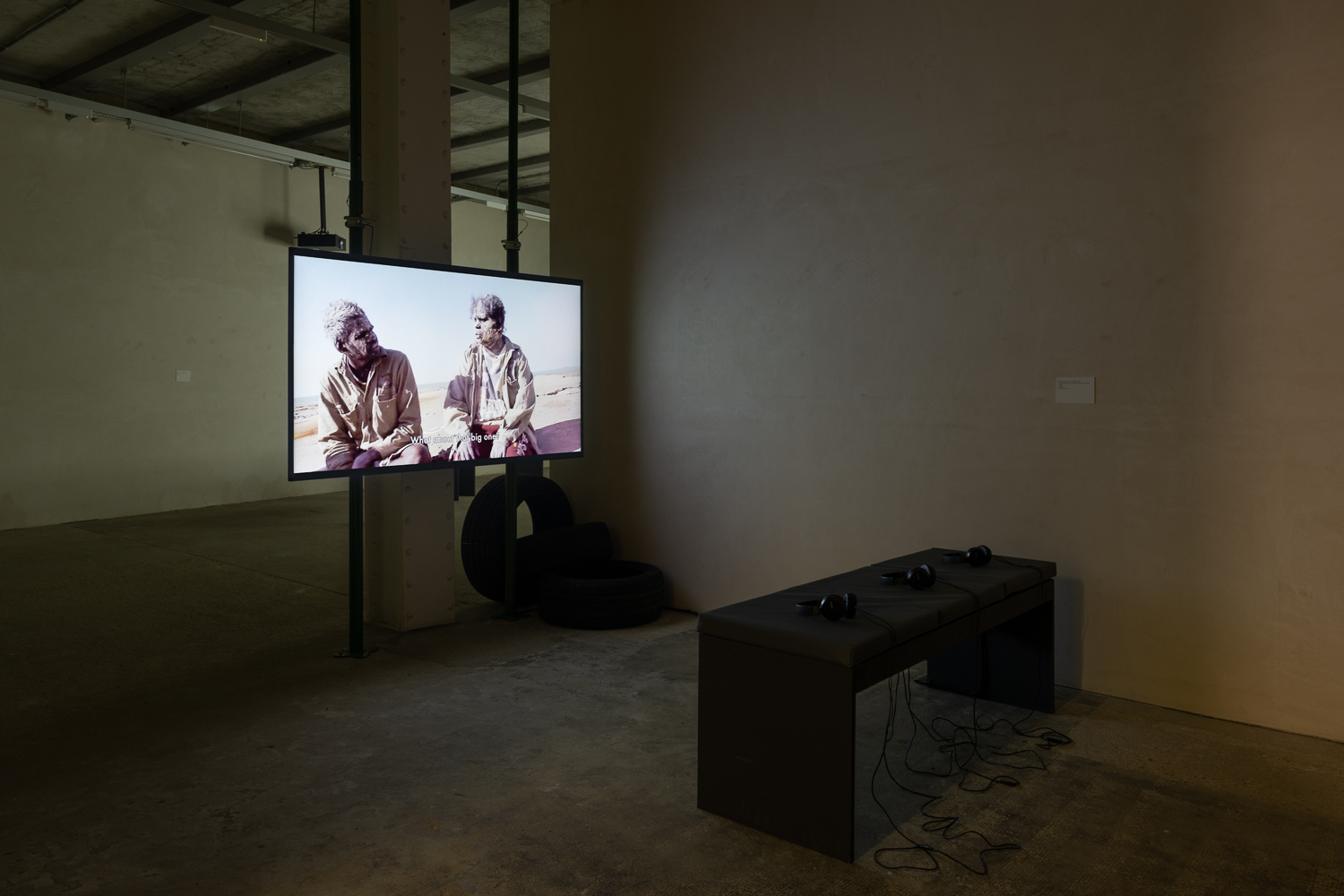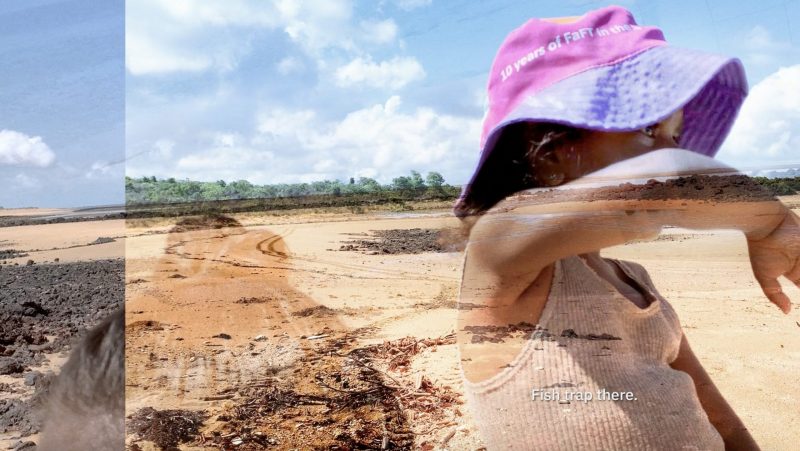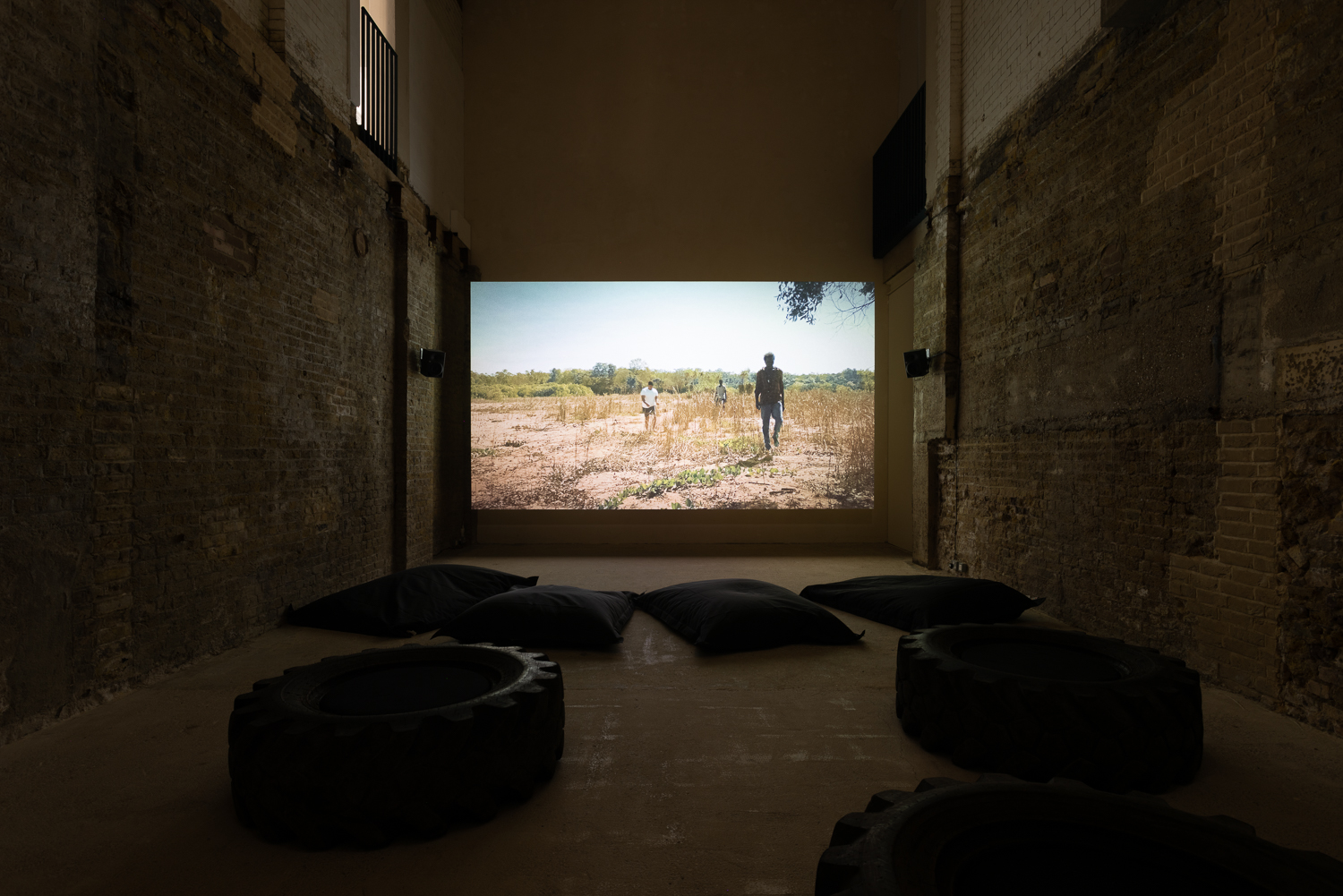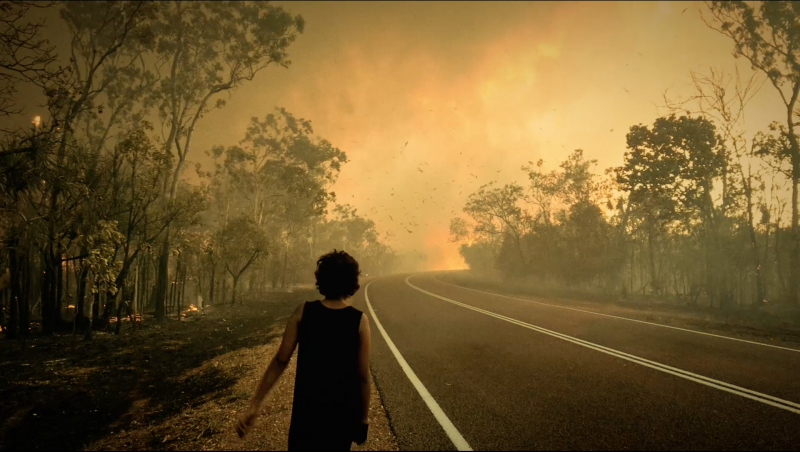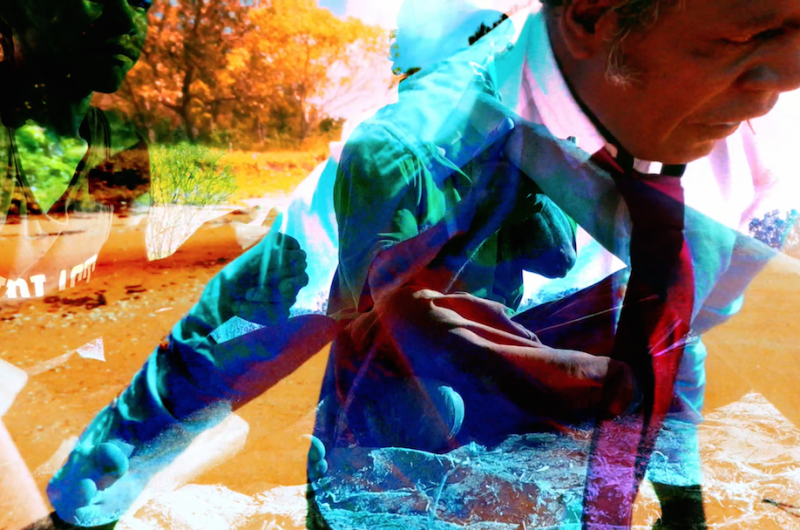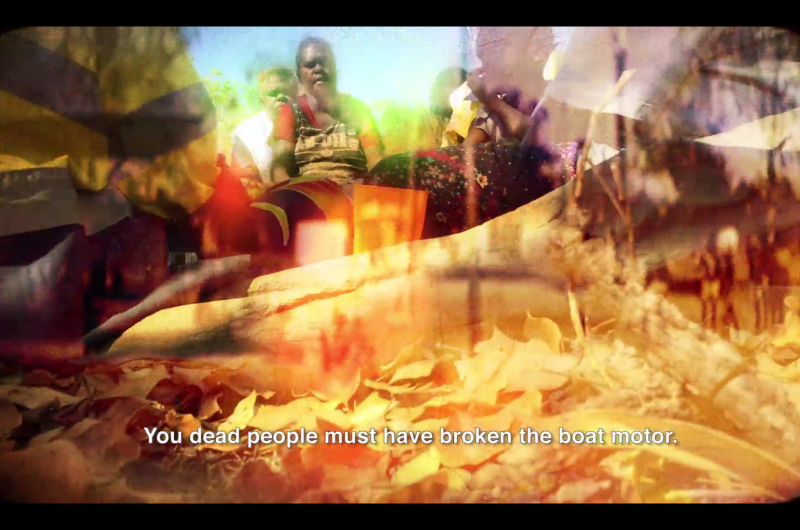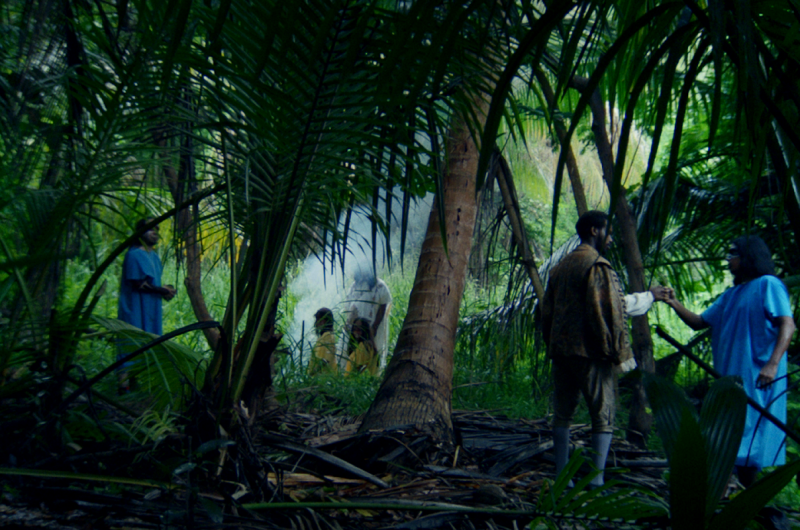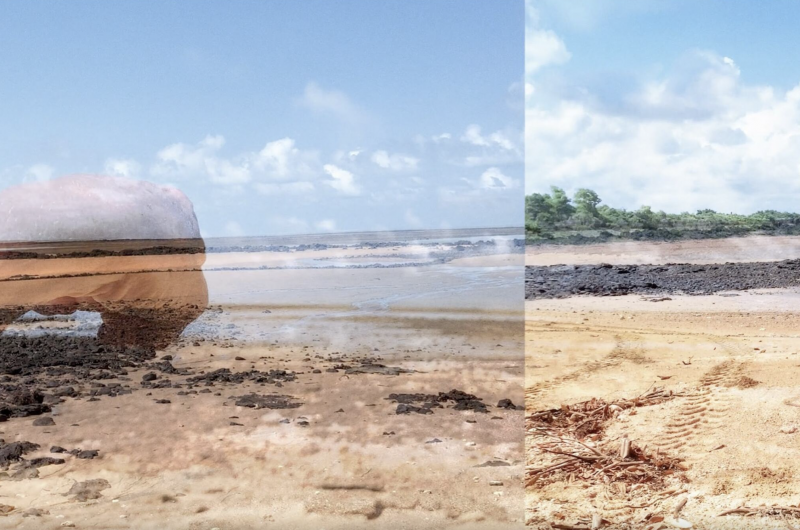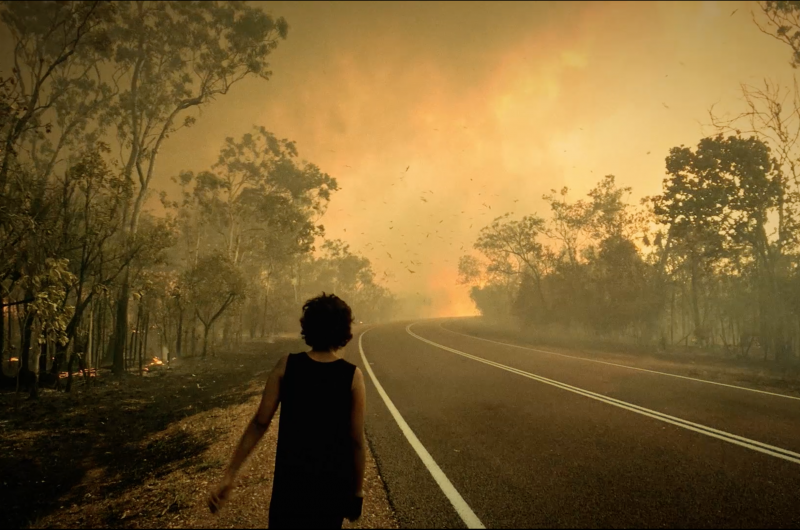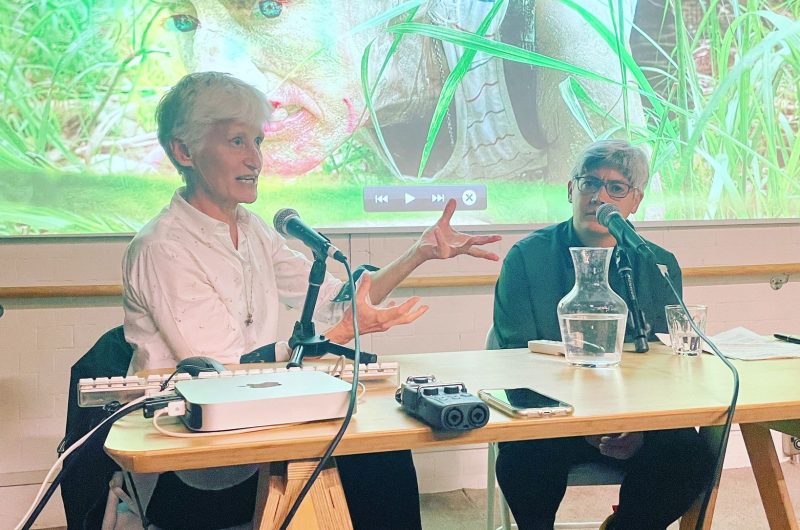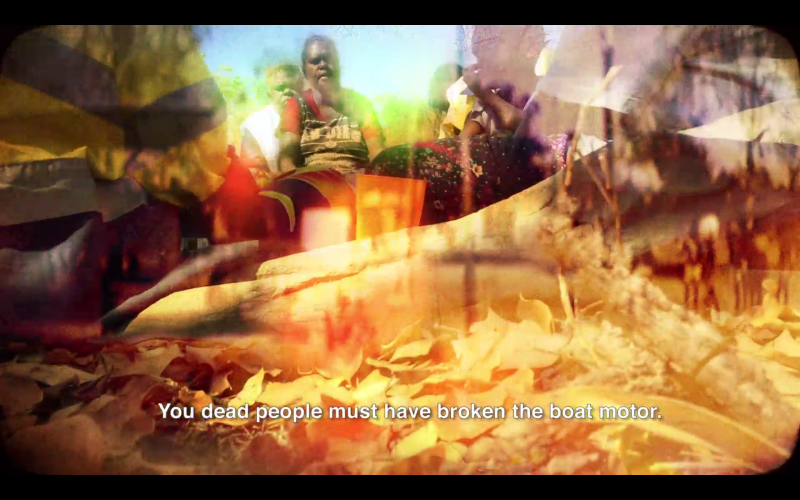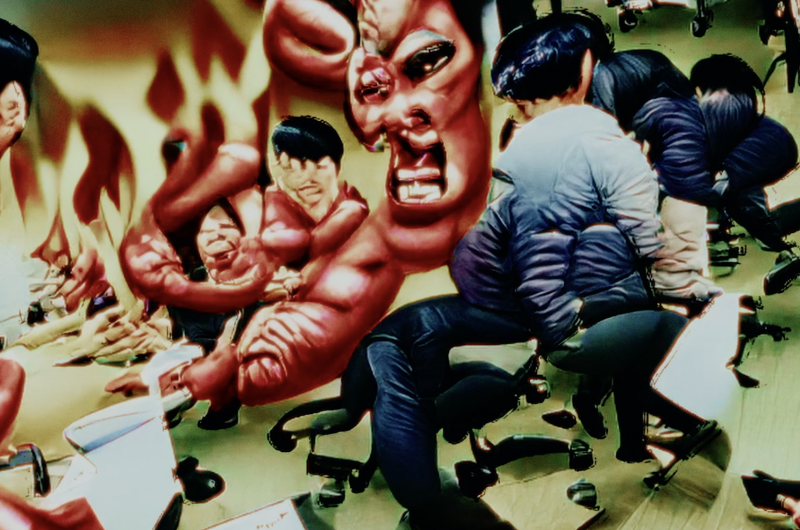KARRABING FILM COLLECTIVE
Night Fishing with Ancestors
Opening Event: Friday 6 Oct, 6-9pm
Goldsmiths CCA presents an exhibition of films by the Karrabing Film Collective, a grassroots Indigenous media group of approximately 30 members living in the Belyuen Community, in Australia’s Northern Territory. The exhibition comprises existing works, and a new film, Night Fishing with Ancestors (2023), which will be seen for the first time in the UK.
Connecting the four films on display is the concept of theft; both of the traumatic historical theft of land and children, but also an ongoing theft of a future through environmental degradation. The exhibition proposes an ultimate connectedness, from the specificity of the Karrabing experience, to the wider global population under the conditions of climactic emergency, which is underwritten by extractive capitalism and colonialism.
Night Fishing with Ancestors follows the story of the Macassan traders who, from around 1700, sailed to the Australian coast from Indonesia, to collect trepang (sea cucumbers); a moment of contact between Asia and Indigenous people from Australia that predates European settlement, and that was peaceful and collaborative. This provides a model of contact that undermines the violence of white colonialism. White settlers make an incursion in the film through the figure of the zombie, a reoccurring presence in recent Karrabing films as ‘life turned to Nonlife and transformed into a new kind of species war.’[1]
Karrabing use film-making as a counter-practice through which to explore shared histories that have been suppressed and partially erased, to forge intergenerational relationships across the group, to reconnect to the land, and, through the international art world, to attract funds to support access to their lands. Karrabing was formed in the aftermath of settler governance that had forced them from their lands in 2007, and initially films were made using the techniques of formal filmmaking. Later films are self-shot on phones, and use layered editing techniques to relate contemporary stories – such as a boat breaking down or cops interfering in daily life – whilst also interweaving ancestral relationships and traditional narratives. The films have multiple entry points, through a hallucinatory quality, keen sense of humour, reference to genre films (such as zombie movies), whilst also excavating knowledge of the complex mythologies that root the Karrabing to their ancestors.
[1] Elizabeth Povinelli, Issue 81, E-flux journal, 2017.
BIOGRAPHY
Karrabing Film Collective (est. 2012, Australia) is a grassroots Indigenous media group consisting of over thirty members. They approach filmmaking as a mode of self-organisation and a means of investigating contemporary social conditions of inequality. Screenings and publications allow the Karrabing to develop a local artistic language and allow audiences to understand new forms of collective Indigenous agency. Their films represent their lives, create bonds with their land and intervene in global images of Indigeneity. Their films and installations have been exhibited at MoMA-PS1, New York; Secession, Vienna; Haus der Kunst Munich, Contour Biennale, Mechelen, Belgium; Berlinale Forum Expanded; Hallucinations, Athens at documenta 14; Sydney Biennale; vdrome.org; e-flux supercommunity at the Venice Biennale; Doc’s Kingdom, Lisbon; and Wexner Center for the Arts, Columbus, Ohio, among others. They are the recipients of the Visible Award (2015), Eye Film Prize, Eye Filmmuseum (2022) amongst others.
Opening Event: Friday 6 Oct, 6-9pm
Goldsmiths CCA presents an exhibition of films by the Karrabing Film Collective, a grassroots Indigenous media group of approximately 30 members living in the Belyuen Community, in Australia’s Northern Territory. The exhibition comprises existing works, and a new film, Night Fishing with Ancestors (2023), which will be seen for the first time in the UK.
Connecting the four films on display is the concept of theft; both of the traumatic historical theft of land and children, but also an ongoing theft of a future through environmental degradation. The exhibition proposes an ultimate connectedness, from the specificity of the Karrabing experience, to the wider global population under the conditions of climactic emergency, which is underwritten by extractive capitalism and colonialism.
Night Fishing with Ancestors follows the story of the Macassan traders who, from around 1700, sailed to the Australian coast from Indonesia, to collect trepang (sea cucumbers); a moment of contact between Asia and Indigenous people from Australia that predates European settlement, and that was peaceful and collaborative. This provides a model of contact that undermines the violence of white colonialism. White settlers make an incursion in the film through the figure of the zombie, a reoccurring presence in recent Karrabing films as ‘life turned to Nonlife and transformed into a new kind of species war.’[1]
Karrabing use film-making as a counter-practice through which to explore shared histories that have been suppressed and partially erased, to forge intergenerational relationships across the group, to reconnect to the land, and, through the international art world, to attract funds to support access to their lands. Karrabing was formed in the aftermath of settler governance that had forced them from their lands in 2007, and initially films were made using the techniques of formal filmmaking. Later films are self-shot on phones, and use layered editing techniques to relate contemporary stories – such as a boat breaking down or cops interfering in daily life – whilst also interweaving ancestral relationships and traditional narratives. The films have multiple entry points, through a hallucinatory quality, keen sense of humour, reference to genre films (such as zombie movies), whilst also excavating knowledge of the complex mythologies that root the Karrabing to their ancestors.
[1] Elizabeth Povinelli, Issue 81, E-flux journal, 2017.
BIOGRAPHY
Karrabing Film Collective (est. 2012, Australia) is a grassroots Indigenous media group consisting of over thirty members. They approach filmmaking as a mode of self-organisation and a means of investigating contemporary social conditions of inequality. Screenings and publications allow the Karrabing to develop a local artistic language and allow audiences to understand new forms of collective Indigenous agency. Their films represent their lives, create bonds with their land and intervene in global images of Indigeneity. Their films and installations have been exhibited at MoMA-PS1, New York; Secession, Vienna; Haus der Kunst Munich, Contour Biennale, Mechelen, Belgium; Berlinale Forum Expanded; Hallucinations, Athens at documenta 14; Sydney Biennale; vdrome.org; e-flux supercommunity at the Venice Biennale; Doc’s Kingdom, Lisbon; and Wexner Center for the Arts, Columbus, Ohio, among others. They are the recipients of the Visible Award (2015), Eye Film Prize, Eye Filmmuseum (2022) amongst others.
Read Less...
